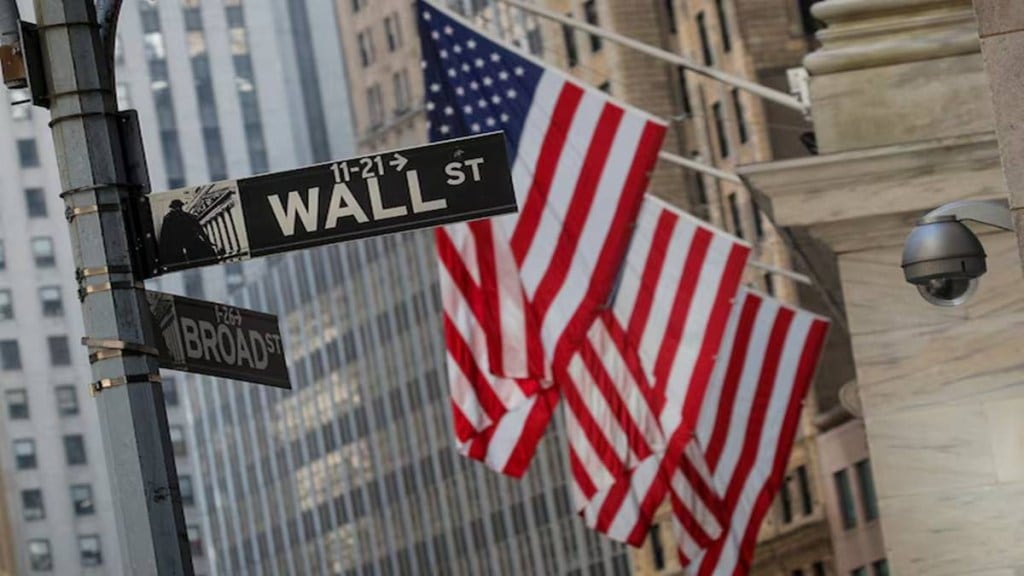Just a day after markets soared on news of a global tariff pause, the optimism vanished in a spectacular fashion. The S&P 500 plunged 3.5 per cent, the Dow tumbled over 1,000 points, and the Nasdaq slid 4.3 per cent, marking one of the worst trading days since the pandemic-era crashes of 2020. Investors were left stunned as a clarification from the White House revealed that tariffs on China had actually increased to 145 per cent, sparking fears of prolonged trade tensions and economic fallout.
No pause on China tariffs triggering Wall Street meltdown
While the rest of the world got a temporary reprieve from the 90-day Trump tariff pause, China—America’s third-largest source of imports—was hit harder than ever, with tariffs stacked on top of existing levies. This detail sent markets into a tailspin, as investors realised the global economic impact was far from neutralised. “Trump blinks,” UBS strategist Bhanu Baweja wrote in a report about the president’s decision on tariffs, “but the damage isn’t all undone.”
Investors are now seeking companies resilient enough to weather the tariff storm. Apple, however, remains a point of concern. As the third-largest holding in many portfolios, the tech giant manufactures the bulk of its iPhones and other products in China—making it particularly vulnerable to escalating trade tensions. Apple shares fell 6 per cent mid day on Thursday and ended nearly 5 per cent lower despite an earlier 15 per cent rally.
“Everything is still very volatile, because with Donald Trump, you don’t know what to expect,” said Francis Lun, chief executive of Geo Securities. “This is really big uncertainty in the market. The threat of recession has not faded.”
Investors flee amid rising uncertainty
Analysts say the sharp sell-off reflects growing frustration and confusion among investors trying to navigate Trump’s aggressive trade moves. “This is a market that’s frustrated, uncertain and confused about where we’re going to be one day to the next,” John Canavan of Oxford Economics told BBC. With no clear path forward, many investors chose to pull out, seeking safety in cash or less volatile assets.
“Investors are waking up to the reality that the US-China trade clash is likely to escalate further before any resolution is in sight,” said Michael Bailey of FBB Capital Partners as quoted by Bloomberg.
Vail Hartman, strategist at BMO Capital Markets said that the tariff-driven inflation is still coming as a result of the trade war, even if the immediacy of the impact has been lessened. “The extent of the flow-through of higher tariffs into realised inflation remains an open question – one that isn’t likely to be resolved until well beyond the 90-day pause window,” he adds.
“There’s still a lot of investor unease because the ultimate outcome remains unclear,” said Paul Nolte, senior wealth advisor at Murphy & Sylvest in Elmhurst, Illinois. “Tariff concerns continue to dominate the market, and that uncertainty is driving much of the current sentiment.”
He noted that the CBOE Market Volatility Index, also known as the “fear index,” stayed high at 44.80. “With volatility at these levels, it’s difficult for investors to feel confident about jumping back into stocks,” Nolte added.
Sector-wide bloodbath
Every major sector except consumer staples ended in the red. Tech and energy stocks were hit hardest, with AI darlings from the “Magnificent Seven” group taking heavy losses—Tesla down 7.27 per cent, Nvidia 5.91 per cent, Apple 4.24 per cent. This broad-based retreat underscores the deep anxiety spreading across Wall Street.
US stock market sell off
Nividia – Down 8%
Apple – Down 6.5%
Amazon – Down 7%
Tesla – Down 10%
Meta – Down 7%
Alphabet – Down 4.2%
Netflix – Down 4.1%
Dollar weakens, China retaliates
The ripple effects weren’t limited to stocks. The US dollar fell to a 10-year low against the Swiss franc, while China signalled its discontent by reducing the number of American films allowed in its cinemas. Meanwhile, Beijing’s 84 per cent tariff on US goods remains, further escalating tensions.
Tariff pause, but not for China
Trump’s tariff pause failed to calm markets because it excluded the one country that matters most: China. As long as tariffs on Chinese goods remain sky-high, fears of inflation, slowed growth, and geopolitical instability will likely continue to haunt investors.
“These are machines, and they break,” Trump remarked cryptically in reference to both helicopters and, metaphorically, markets on Thursday.
Thursday’s Wall Street bloodbath made it clear that the tariff pause did little to calm the markets.
